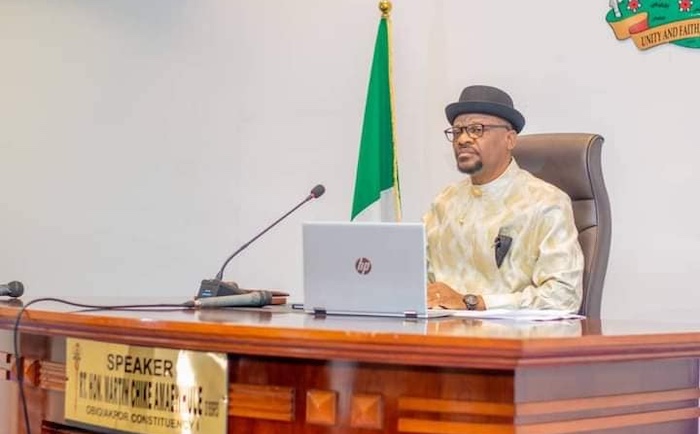The Rivers State House of Assembly, led by Speaker Martins Amaewhule, has passed a bill to repeal the Commission of Inquiry Law of 1999, sparking widespread confusion in the state.
The legislative move, announced through a statement signed by Amaewhule’s Special Assistant on Media, Martins Wachukwu, replaces the outdated law with the newly enacted Rivers State Commissions of Inquiry Bill, 2024.
The statement, released on Wednesday in Port Harcourt, described the bill as a progressive measure aimed at modernizing the state’s legal framework. According to lawmakers, the new legislation is intended to guide the establishment and conduct of commissions of inquiry in the state, aligning with contemporary governance standards.
Amaewhule emphasized the Assembly’s commitment to replacing obsolete laws that no longer serve the people’s interests.
“As a progressive Assembly, we will continue to amend, repeal, or re-enact laws that have outlived their usefulness to ensure they reflect the current realities and aspirations of Rivers people,” he stated.
The Rivers Assembly noted that public response during the bill’s hearing highlighted strong support for its passage. Before adopting the bill, lawmakers resolved into the Committee of the Whole, scrutinizing and approving the legislation clause by clause, in line with legislative practices.
READ ALSO: Fubara prays Appeal Court to vacate order stopping allocations to Rivers
“The robust debates and contributions from lawmakers during the deliberations showcased our collective resolve to move Rivers State forward,” Amaewhule remarked.
The Speaker also expressed confidence that the new bill, once signed into law, would enhance the doctrine of separation of powers by clearly defining the parameters for establishing commissions of inquiry.
Despite the legislative progress, the move has fueled confusion and debate across Rivers State. Critics argue that the Assembly’s activities have been overshadowed by political tensions and uncertainty regarding the status of lawmakers who switch parties.
Under Nigerian law, legislators who defect to another party may lose their seats, raising questions about the stability of the current Assembly. Analysts have noted that such political dynamics could hinder the smooth implementation of newly enacted laws, including the Commissions of Inquiry Bill, 2024.
Constitutional lawyer Barrister Chijioke Nwosu commented on the legislative development: “The repeal of outdated laws is commendable, but the legal framework must be implemented in a politically stable environment. The ongoing confusion over party defections in Rivers State threatens to undermine the legislative process.”
Political analyst Dr. Grace Ibim also weighed in: “While the new bill promises to align the state’s inquiry processes with modern governance standards, the public’s perception of the Assembly’s credibility remains critical. Resolving the tension around legislative seats is essential for lasting peace in the state.”
The new Rivers State Commissions of Inquiry Law, when signed into law, is expected to provide a clearer framework for conducting inquiries into public matters, ensuring accountability and transparency.
However, the political climate in Rivers State raises questions about the law’s effective enforcement and the Assembly’s ability to legislate without distraction.
As Rivers State grapples with political and legislative uncertainties, observers say that only time will reveal the true impact of this legislative overhaul.

 Entertainment6 days ago
Entertainment6 days ago
 Health1 week ago
Health1 week ago
 Health4 days ago
Health4 days ago
 Football1 week ago
Football1 week ago
 Football1 week ago
Football1 week ago
 Crime4 days ago
Crime4 days ago
 Education6 days ago
Education6 days ago
 Crime1 week ago
Crime1 week ago

